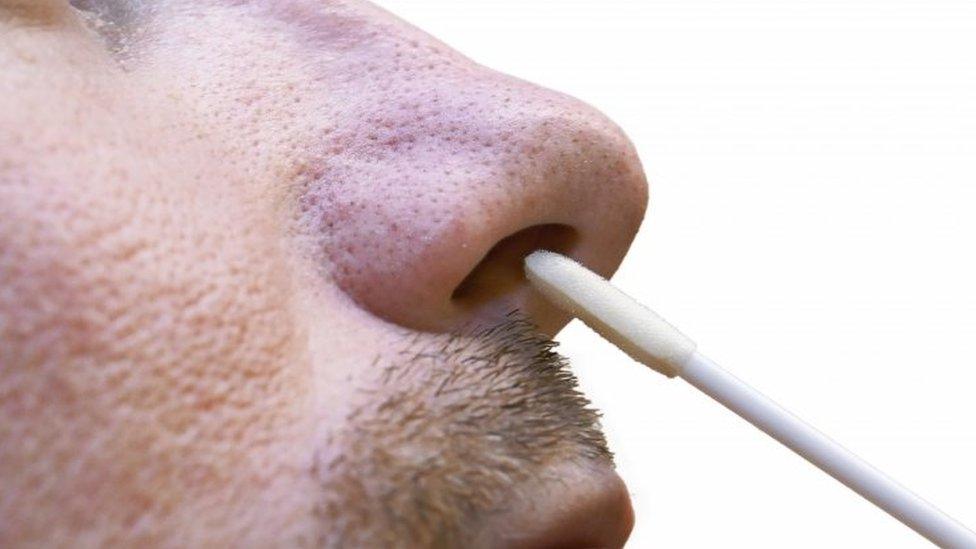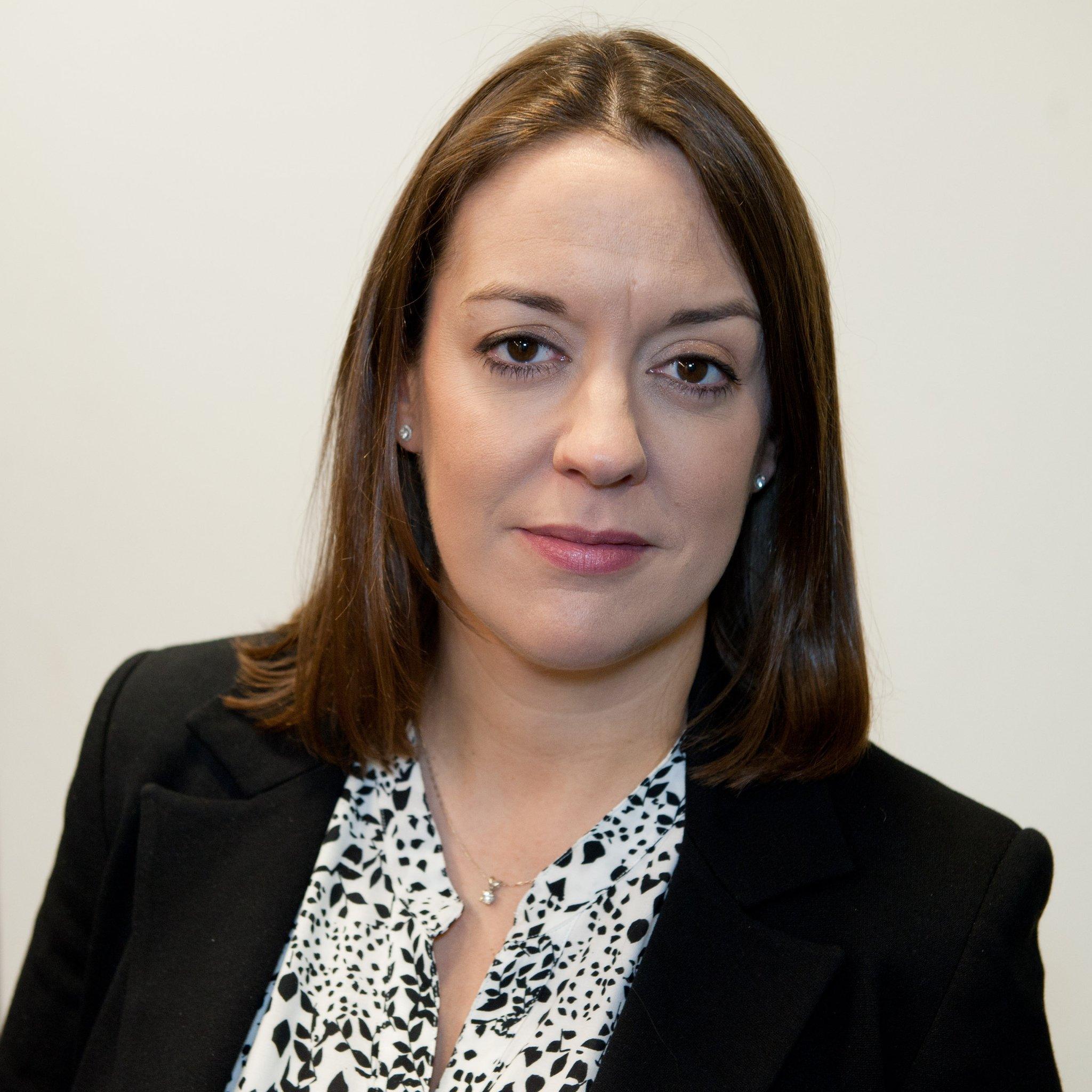UK underinvested in healthcare, says pharma boss
- Published
Roche boss: 'UK has not invested enough into healthcare'
The UK has underinvested in healthcare "over many years" which has hampered its ability to respond to the coronavirus pandemic, according to the boss of Roche, one of the world's largest pharmaceutical and diagnostic companies.
Severin Schwan, Roche chief executive, told BBC Newsnight: "the real issue here is that the UK has probably not invested enough into healthcare, both in absolute terms and in relative terms over many years. That was a problem to start with, but it really shows up in such a crisis when the system is more stressed."
The company is a key partner of the government and Public Health England in ramping up testing for coronavirus.
Mr Schwan said: "the cooperation and the partnership with the government is excellent, but you can't fix the infrastructure in a couple of weeks. I mean, if there is too little investment over many years into the health care system, then it's simply not possible to ramp up as fast as you would wish in such a challenging situation."
Roche now has 13 UK sites operating to run high-throughput swab testing for coronavirus, under its partnership with the government.
But Mr Schwan added that, in terms of these high-throughput systems, the UK still had "about half the capacity" of other European countries, like Germany and Switzerland, relative to population.
A spokesperson for the Department of Health and Social Care said: "The government is committing record investment to the NHS, including the Long-Term NHS funding settlement, which has been enshrined in law. We have created a whole national testing programme from scratch.
"Simultaneously, we have increased the capacity of our laboratories and established a partnership with Roche diagnostics, which has already provided thousands of additional tests."

Mr Schwan also cast doubt on the government's ability to hit its target of conducting 100,000 tests a day by the end of the month.
He told the BBC: "I have no overview on how much capacity our competitors already provide to the UK. But if your question is, is it possible to double the infrastructure in one year, in one week, then I can clearly tell you this is not possible. This is absolutely impossible. We are already increasing the infrastructure, but to double within a week or 10 days, it's not possible."
The government this week said it had capacity to carry out about 40,000 tests each day, but are actually conducting less than half that figure. But the government believes that it has sufficient machines and reagent available to deliver its strategy of 100,000 tests by the end of April, according to one person familiar with the matter.
A new antibody test
Roche is planning to launch a new antibody test for coronavirus, which will identify if people have already had the virus. Mr Schwan told Newsnight that ramping up numbers for that test should be easier than for the molecular, or swab, tests for whether people currently have the disease.
"From a technology point of view, it is much easier to scale up antibody tests," he said. "So Roche alone we have committed to provide antibody tests in the high double millions already in June.
"And there are other competitors who will provide reliable antibody tests as well. And also, very importantly, antibody testing platforms are already widely spread in labs because you need immunology tests in many other areas. And as such there's much more capacity.
"So the ramp-up for antibody tests will be much easier, it'll be much faster than it has been the case for molecular tests."
Mr Schwan added that demand for the molecular coronavirus tests are far outstripping demand worldwide and that the company had prioritised the areas of greatest need and countries where the installed base of laboratories meant tests could be used, to avoid stockpiling.
You can watch Newsnight on BBC 2 weekdays 22:30 or on iPlayer. Subscribe to the programme on YouTube, external or follow them on Twitter, external.
- Published6 March 2020
- Published22 April 2020
